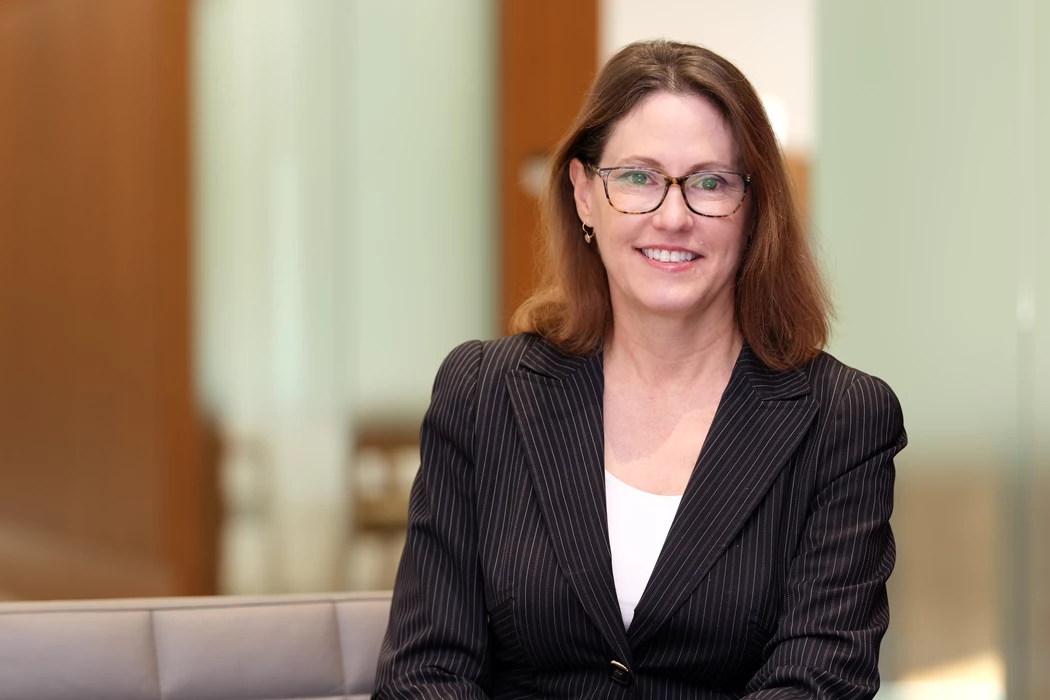Sustainability within the energy transition
Rachel Clingman is the Executive Vice President, Sustainability and Governance for McDermott. She talks to Energy Connects about sustainability in the today's energy industry. In her interview, she explains what sustainability means and how they view the possibility of achieving sustainability.
What does sustainability mean now in the energy industry?
Sustainability is an essential term and way of thinking; but it is also a word that is often overused and mis-used. At McDermott, we defined sustainability as a journey of continuous improvement; a journey of advancing the needs of a low-carbon global economy; and a journey of evolving partnerships with our people and communities. With world-class technical expertise and dedicated Sustainability and energy transition teams and subject-matter experts, we are designing and creating ways for ourselves and our customers to reduce our respective carbon footprints and achieve sustainability targets while providing extensive, safe, clean and efficient energy. Through our award-winning energy transition solutions in net-zero construction, carbon capture, hydrogen, offshore wind, circular economy, energy storage and NET Power©, we are creating critical infrastructure with lower environmental impact.
We recently reviewed and transformed our governance and practices to promote innovation, increase global collaboration across areas of expertise, and maintain accountability for our sustainability targets which are:
- Develop sustainable solutions that support the energy transition
- Contribute the sustainable economic growth
- Reduce our operational environmental footprint and improve resource efficiency
- Promote well-being in ways that address our workplaces and communities
How do we hold companies that are transitioning accountable?
Within a company, we believe accountability requires an adaptive and multifaceted approach that includes governance, subject matter expertise, management support, open discussion, client partnerships, and transparent reporting.
Our sustainability program includes a governance system that extends across the organization from the Board and executive management to dedicated communities of practice, clear leadership, and dedicated employee groups. I have been particularly impressed with our employee resource groups dedicated to sustainability, such as the one located in our office in The Hague. These groups operate much like an internal think tank, taking ideas from nascent stage through technical and commercial review to client solutions. The employees are creative, passionate, and dedicated, and they are part of our accountability.
Overall accountability and success will require sustained engagement from industry, governments, capital markets, and our global society in order to find lasting solutions.
What are the risks that these companies (ones that are transitioning) are facing now and how would you advise them?
There are many risks and opportunities in the transition and the future as well as the present need to provide resources for the world’s current needs.
One of the main risks of energy transition is that we (industry operators, investors, and policy makers) push it in a way that does not take into account all of the consequences on the industry and on world-wide economic activity, thereby creating new problems for communities or exacerbating inequality around the world. As an industry, we need to be mindful of this and seek data-based and constructive discussions with policy makers, investor communities, civil society, special interest groups, and other key stakeholders to mitigate unintended consequences.
Where is the energy industry heading towards - can there really be a sustainable energy industry?
Yes, we see many opportunities and believe a sustainable energy industry is achievable. We see that in goals and targets that have been increasingly adopted across industries, energy and others. Sustainability is part of our discussions with customers and partners, and we see steadily-increasing interest in our low-carbon and netZero capabilities as we develop sustainable and renewable energy services to diversify McDermott’s portfolio.






